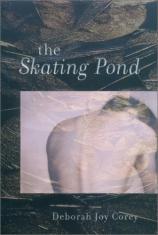Reading Group Guide
Discussion Questions
The Skating Pond

1. Elizabeth, the narrator opens and closes with the passage "January is when I think of her most, when the weather has stolen all there is to steal and the earth looks barren under cold blue skies, as is waiting." Why do you think the author chose to repeat this passage?
2. Several of the distinguished authors who provided advance comments on The Skating Pond refer to the vivid setting of the novel. How does Stonington come alive as a place? To what extent is the Maine coast essential to the story of the characters in The Skating Pond? How are they defined by their surroundings.
3. For the villagers, life on the Maine coast is often bleak and hard, and sometimes even cruel. Describe Stonington through Elizabeth's mother's eyes. How do her feelings about her life there affect Elizabeth's life as a girl, as a wife, as a mother?
4. Early in the novel Elizabeth's father sketches her in a way that she says is "neither me nor not me"—in particular, she feels that the lips are not hers. Later, as a grown woman, she notices the smirk of her lips and immediately recognizes them as the ones her father drew years earlier. What might this suggest about how Elizabeth remembers and relates to her childhood and her transition to adulthood?
5. Discuss the afternoon of the accident. What was special about the day before the accident as compared to the other skating afternoons at the pond?
6. Two people from outside come to Stonington and promise rescue: Celise, the young, sexually attractive art dealer with whom Elizabeth's father escapes Stonington and his wife's agonies; and Frederick, the architect whose seduction of Elizabeth helps her forget her loneliness for a time. Do you think that either Elizabeth or her father is better or worse off for these relationships?
7. What does Elizabeth discover about herself in her relationship with Frederick? How does that compare to her relationship with Michael? How does Elizabeth describe herself later with each of the two men in her life?
8. When Elizabeth learns that Frederick is married, she says that a wife can be replaced, but it is more difficult to replace those familiar with our irresistible sins. How does this distinction play out in Elizabeth's life? In what ways does this influence Elizabeth's feelings about intimacy and desire?
9. Elizabeth's mother tells her that she is named for the Canadian poet Elizabeth Bishop, who once had a cottage in Stonington. As an adult, Elizabeth stumbles across Bishop's poem "The Fish" and compares it to her relationship with Frederick. In the poem, the narrator catches an ancient, battered, often hooked fish and lets it go, even though it has not fought the fisherman this time. Is Elizabeth's analogy a true one?
10. How does Elizabeth's young loss of innocence affect her relationship with Michael and the children? How does it dictate the choice she makes about Dorie and Frederick?
11. Why are art and artists, particularly John Marin, such important influences on Elizabeth's description of Stonington and her life?
12. Why is Elizabeth so shaken by her father's paintings "Master" and "Traveling"?
13. Why does Bertie MacDonald say that what a woman fears most is her intuition? When in the novel does Elizabeth's intuition give her good counsel, or bad counsel about the choices before her?
14. Near the end of the novel Bertie admits to Elizabeth that she chopped off her fingers to jolt herself out of the grayness she had fallen into to avoid feeling guilty about the death of her children. This echoes Doreen's statement that "No woman is ever without guilt." In what ways does guilt shape the female characters in the novel? How does Bertie's disclosure affect Elizabeth's perspective on her marriage and life in Stonington?
15. Animals play a role in the novel—from Elizabeth's childhood pet, the herder Sadie, to Sheila, the Eskimo dog she gets for companionship after her mother's death, to the coyote-dogs that are both wild and tamed, to the harlequin duck that surprises Elizabeth on Helena's Ledge. What literal and figurative role do these animals play in the novel? How do they express Elizabeth's belief that "no living creature is predictable...[that] anything has wild in it and anything can go wild again"?
16. Elizabeth's family is destroyed by their tragedies, while Michael's family is made stronger by them. What qualities distinguish the two families and their relationships with one another? What is the essence of a family that survives?
17. Why does it require confidence for Elizabeth and Michael to be together? How does Elizabeth's behavior when Frederick revisits the town change their level of confidence in one another?
18. Elizabeth faces a choice at the end of the novel—to leave with Frederick and escape life in Stonington or stay with Michael and fully embrace him and her life there. In what ways has Elizabeth made choices in her life and in what ways has she let her life make choices for her? What, in the end, ties Elizabeth to Stonington?
19. What is the author trying to say about choice and destiny in the characters' lives?
The Skating Pond
- Publication Date: January 7, 2003
- Hardcover: 256 pages
- Publisher: Berkley Hardcover
- ISBN-10: 0425188353
- ISBN-13: 9780425188354






